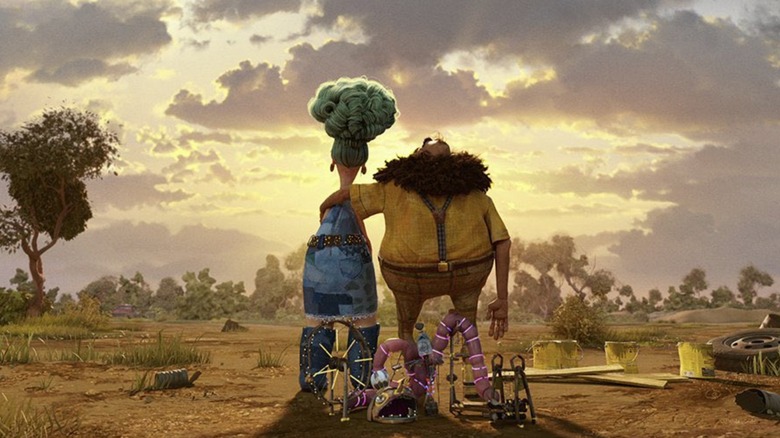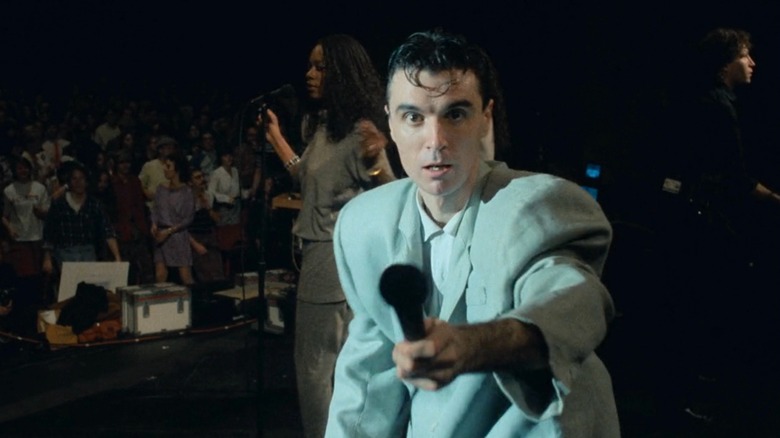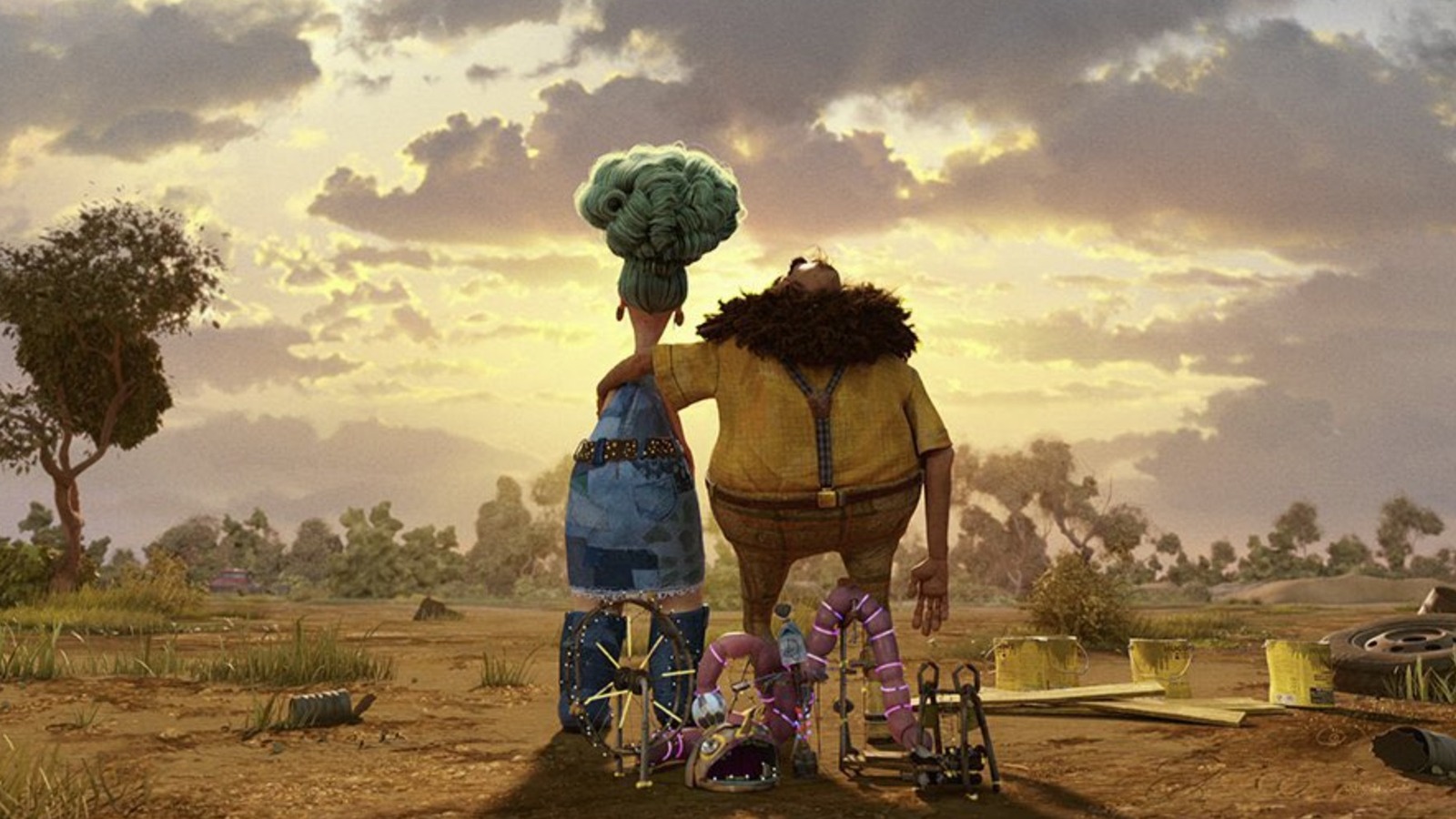
Netflix
We may receive a commission on purchases made from links.
Roald Dahl is one of the preeminent writers/illustrators in the history of British children’s literature, though some kids discover Dahl’s works through the movies they’ve been made into. The 1971 “Willy Wonka and the Chocolate Factory” is a classic, and Danny DeVito’s Americanized “Matilda” is a millennial touchstone. Dahl’s art style hewed towards caricature (his villains were always ugly inside and out), and to capture that, some Dahl adaptations have opted for animation — such as the latest one, “The Twits.”
Based on the 1980 novel, “The Twits” stars the eponymous couple (Margo Martindale and Johnny Vegas). They’re a couple of, well, twits out to make everyone (including each other) miserable. The latest work of “Wreck-It Ralph” director Phil Johnston, “The Twits” is animated in 3D, but with a fitting dirtiness, rather than the Disney-meets-video game sheen of “Wreck-It Ralph.”
Like the book, Mr. Twit is drawn with a bushy beard; “The Twits” sometimes feels like Dahl’s lesson on the importance of shaving; the very first chapter of the book is called “Hairy Faces,” and the book encourages the young readers to look at bearded men with suspicion and revulsion (chapter no. 3 discusses all the ways beards accumulate crumbs and filth).
The movie is appropriately filled with gross-out humor, but it also departs from and softens the book’s meanness. Speaking to Cartoon Brew, Johnston explained:
“[Dahl’s book is] really a series of sketches; the Twits being horrible to each other and to animals. So for me, the fun was taking these two hateful, fantastic characters and building a world around them. It’s really more inspired by than adapted from the source material.”
Hence, the movie introduces a central conflict (the Twits opening amusement park Twitlandia), a young hero in the orphan Beesha (Maitreyi Ramakrishnan), and musical numbers.
Netflix’s The Twits’ soundtrack brings together two rock stars

Cinecom Pictures
“The Twits” has provoked divided responses, and both the humor and heartfelt moments don’t always land. If there’s one thing that’s remarkable about the movie, it’s the songwriting talent on its soundtrack. David Byrne, lead singer of Talking Heads, wrote the songs sung in the film, such as the Twits’ duet “We’re Not Like Ev’ryone Else.” The ending credits sequence song, “Open the Door,” was co-written by Byrne and Paramore’s Hayley Williams, who provides the lead vocals. (Williams has done end-credit songs before with Paramore, such as in “Twilight.”)
Speaking to Rolling Stone, Johnston said that Byrne had the idea to recruit Williams. This is far from the first Talking Heads/Paramore mash-up; Williams is a fan of Talking Heads, and the band was a key influence on Paramore’s fifth album, ’80s sad-pop “After Laughter.” In 2024, Paramore featured on a tribute album to Talking Heads’ 1984 concert film “Stop Making Sense” with an electrifying cover of “Burning Down The House.”
The appreciation goes both ways; in 2024, Byrne also released a cover of Paramore’s “Hard Times” after learning Talking Heads had inspired it, and had Williams collaborate on his new album, “Who Is The Sky?” Byrne and Williams have recorded conversations and performed live together. Writing “Open the Door” is the next chapter of their partnership.
How’s the song itself? It’s soft and melodic, laying the movie’s themes of found family on thick (e.g., “Family is not only who you’re related to, it’s who you care for and who cares for you”). The lyrics may be saccharin,e but Williams’ singing convinces you of their truth. In that way, it’s a cut above the film it accompanies.
“The Twits” is streaming on Netflix.
